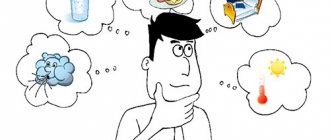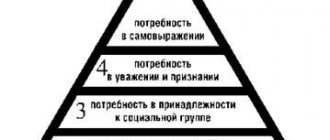Ways to satisfy modern man
The definition of social needs has changed as the world has evolved. In current conditions, people are increasingly excluded from society. The Internet, social networks, gadgets - all this leads to the fact that individuals have little face-to-face contact.
Important! It is impossible to clearly name effective ways to satisfy needs, since they are different for each person. There are general recommendations that will allow you to realize a social need
The individual organizes his own activities, so he must communicate, make contact, meet other people and take initiative
There are general recommendations that will allow you to realize a social need. The individual organizes his own activities, so he must communicate, make contact, meet other people and take initiative.
The ability to conduct conversations does not appear with the birth of a person. Social skills are trained through practice. You need to constantly communicate and get to know each other.
Another way is to learn new things. Meetings, seminars, training courses - all this allows you not only to gain knowledge, but also to acquire new social connections.
A person must understand who he is. To do this, he needs to devote time to reflection. Such self-analysis allows you to get an idea of your pros and cons. Self-esteem appears only in self-confident people.
Hierarchy
The diversity of human nature is the reason for the existence of various classifications of needs: by object and subject, areas of activity, temporary stability, significance, functional role, etc. The most widely known is the hierarchy of needs proposed by the American psychologist Abraham Maslow.
- The first stage is physiological needs (thirst, hunger, sleep, sexual desire, etc.).
- The second stage is security (lack of fear for one’s existence, confidence).
- The third stage is social needs (communication, friendship, love, caring for others, belonging to a social group, joint activities).
- The fourth stage is the need for respect from others and oneself (success, recognition).
- The fifth stage is spiritual needs (self-expression, revealing inner potential, achieving harmony, personal development).
Maslow argues that satisfying needs at the lower levels of the hierarchy leads to strengthening of higher ones.
A thirsty person concentrates his attention on finding a source of water, and the need for communication fades into the background
It is important to remember that needs can exist simultaneously, the issue is only a matter of priority
Material and intangible benefits
The development of economic needs occurs in the direction of increasing consumption of material and intangible goods. The first are the result of the functioning of one or another material production (construction, agriculture, industry, etc.). These are clothing, food, cars, buildings, household appliances, sporting goods, etc.
The second (intangible benefits) exist in the form of activities: treatment, training, communal, household or transport services for the population, etc. Intangible goods are fundamentally different from material ones in that the consumption of the latter is always preceded by the process of their creation. Both in space and in time these two processes are separated. Unlike goods, the production of services at the same time acts as their consumption, that is, as a rule, there is no time gap.
Significance
Satisfying social needs from the “for oneself” group is a necessary condition for the formation of a full-fledged personality.
Compliance of a person’s life with his social expectations guarantees the positive socialization of such a person in society and excludes the manifestation of any forms of deviant behavior.
A person who is satisfied with his level of development, education, career, friends and family life is a useful member of society.
Each of his satisfied needs leads to the emergence of some socially significant result: a strong family with children is a full-fledged unit of society, career achievements are the successful performance of work functions, etc.
Satisfying needs “for others” and “together with others” is the key to the positive functioning of society.
Only positive interaction between people, their ability to act together in the public interest, and not just individually for personal purposes, will help create a mature society.
The problem of modern society lies precisely in the reluctance of people to satisfy common needs. Each person approaches the issue from a selfish point of view - he does only what is beneficial for him.
At the same time, the lack of initiative in carrying out important social actions leads to disorder, violations of the law, and anarchy.
As a result, the integrity and well-being of the society in which a person lives is violated, and this immediately affects the quality of his own life.
That is, his selfish interests are affected in any case.
Implementation examples
Let me give you real life situations:
- Category "for yourself". From an early age, the child tries to comprehend the surrounding reality. From the moment he gains the ability to talk, he is interested in everything he sees, bombarding his parents with questions. With the ability to read, he begins to extract answers from books. The development process occurs without stopping: while watching TV, while walking, in kindergarten classes. The data is then retrieved when studying at school or university. In everyday life, when a person is faced with a question that interests him, he begins to look for an answer to it.
- Category “together with others”. Everyone has a desire to exist in a free and fair society, where the rules of morality and ethics and legislation are strictly observed. Communication is based on the principles of equality and mutual respect. The individual tries to behave decently, according to basic standards of behavior.
- Group "for others". Unfortunately, altruism is poorly manifested in modern life. This concept implies a complete or partial renunciation of one’s own “wants” in favor of others. But not everyone can sacrifice their interests. However, this need is being satisfied. This includes helping those in need, charity events, creating a shelter for animals and the homeless.
Significance
Satisfaction of needs is the key not only to the formation of a mature personality, but also to stability in general. The correspondence of desires with the education received, the profession, and the circle of loved ones creates useful members of society.
Ask a question
Any realized aspiration leads to a larger result: creating a strong and happy family, fulfilling work responsibilities and, as a result, a successful career.
Such people do not show signs of deviant behavior. When individuals do not have the initiative to take important social actions, disorder and anarchy reign. This deteriorates the quality of life of individuals, and also disrupts the usefulness of society.
Is it possible to manage your needs?
Needs must be satisfied, but they should not control the will of a person. In addition, not all needs are useful, reasonable, or truly necessary. There are so-called imaginary needs that a person does not need, but is not aware of it.
Example. Alina wanted to dye her hair green. Parents did not agree to such an experiment for a long time. Then the girl bought the dye herself and dyed her hair secretly from her family. When Alina came to school, boys and girls began to laugh at her, calling her a mermaid, a swamp monster. Alina expected a backlash; it seemed to her that green was a fashionable color, that she would become popular thanks to this change in image.
At best, imaginary needs do not bring any benefit; at worst, they harm health, life, and well-being.
This is interesting! According to statistics, the number of alcoholics in the world is increasing every year. Scientists have calculated that by 2050, every twentieth person on the planet will be an alcoholic. Addiction causes irreparable harm to health and psyche, but people cannot refuse the need imposed on them.
To learn how to manage your needs you need:
- Have a purpose in life. A purposeful person will not be distracted by nonsense and will prefer useful things to harmful ones;
- Enrich your inner world. A person with many interests, developed abilities, and talents pays less attention to satisfying material needs;
- Show will. When tempted to abuse something, think about the consequences.
(Source)
Thus, a person will become the master of his feelings and needs, he will manage them, and consciously make decisions.
Needs for love and belonging
This is the next level of Maslow's pyramid. The need for love is closely related to the individual’s desire to avoid loneliness and be accepted into human society. When the needs at the previous two levels are satisfied, motives of this kind occupy a dominant position.
Almost everything in our behavior is determined by the need for love.
It is important for any person to be included in relationships, be it family, work team or something else. The baby needs love, and no less than satisfaction of physical needs and security needs
The need for love is especially pronounced during the teenage period of human development. At this time, it is the motives that grow out of this need that become leading.
Psychologists often say that typical behavior patterns appear during adolescence. For example, the main activity of a teenager is communication with peers. Also typical is the search for an authoritative adult – a teacher and mentor. All teenagers subconsciously strive to be different - to stand out from the crowd. This gives rise to the desire to follow fashion trends or belong to a subculture.
What is a person's social needs?
One of the priority needs is internal sensations. For example, the desire for freedom and independent position. The individual wants to break out of the usual framework, if he has one.
Hedonism is another desire that everyone has. Everyone loves to periodically be in a state of serenity, both material, spiritual and physical. But many deny this “wish”, although it is present on a subconscious level. And that's okay. After all, if at the moment there is no way to achieve comfort, then it is easier to convince yourself that it is not necessary.
What else is included
Everyone at least sometimes wants to be the center of attention to feel important. And the point here is not selfishness, but self-respect, increasing authority in one’s own eyes.
No matter how contradictory it may seem, everyone needs negativity. Aggression is a characteristic inherent in everyone. The manifestation of feelings leads to self-satisfaction, a feeling of rightness.
But not everything is so bad, and the need for goodness is also included in the list. Everyone had a desire to help a loved one for free, to perform a selfless act. After this there is a sense of nobility and caring.
Material needs
Material needs play a major role in human life. This group includes all the needs necessary for a comfortable material existence:
- home;
- cloth;
- Appliances;
- furniture;
- means of transportation (personal or public transport);
- electronic devices;
- food.
(Source)
Everyone has their own idea of comfort; the level of material needs depends on a person’s financial situation and personality characteristics.
Example. For Nastya, two pairs of boots are enough for the winter; the main thing for her is that the shoes are comfortable. Maria is worried that her parents refused to buy her new boots because she has a lot of shoes and a new pair won’t fit in her closet.
The entire economy is built on satisfying material needs. Factories and factories produce even more products than a person can purchase. Therefore, wanting to artificially increase needs, manufacturers use a trick - advertising goods. Seeing a beautiful picture on the screen, a person, without meaning to, begins to think about this product and consider it valuable.
Material needs develop with the improvement of technology, so 100 years ago people could only dream of a wired telephone, today everyone has their own mobile phone.
(Source)
Types of needs
Needs can be classified on various grounds, of which there are quite a lot in the theory of psychology. The main types of division of needs are presented in the next section.
If we summarize all available theories, then we should distinguish three basic types of human needs.
Biological or physiological
Among the innate human needs laid down at the genetic level are the following:
- Food safety and taste characteristics.
- Comfortable external temperature and electromagnetic background.
- Clean water suitable for quenching thirst.
- Healthy ecology.
- Safety of life and home.
- Sexual satisfaction.
- Disposal of waste products.
These things are necessary for any living creature. This set of needs has practically not changed since the creation of the world, since from a physiological point of view, we are the same as millions of years ago. A person strives to realize them first and foremost and immediately.
Spiritual
Existential needs come from a system of universal human spiritual values, including: beauty, mercy, tranquility, harmony, peace, art. Each person has their own spiritual needs (as opposed to biological ones) and change over time and experience.
Among the spiritual needs are the following:
- The need for knowledge
. A mature person understands that in order to further grow, he must constantly learn. Moreover, expand the boundaries of existing skills and acquire new ones. People enter educational institutions to receive additional education, take advanced training courses, master new professions, and master the basics of painting and music. - The need for constant work on oneself, improving one’s personality (self-improvement)
. By satisfying this need, we quit smoking, go on a diet, get rid of toxic people and harmful emotions. A person thinks about how he would like to see himself after a certain period of time and strives for this. - The need for love and personal happiness
. The vast majority of people dream of having a loved one of the opposite sex nearby and creating a stable family. Many have been searching for many years, this need is so strong.
The realization of spiritual needs can be carried out through the simplest things. For example, a person goes into nature and sits with a fishing rod, fishing. At this time, he reflects, calms down, acquires spiritual harmony, satisfying his need for peace and making plans for the future.
Social
This type of needs is aimed at understanding one’s place in society and is associated with groups of people, social and economic activity.
Examples of social needs:
Personal identification. A person positions himself as a part of society with common traits inherent in society or a separate group. At the same time, he recognizes himself as an individual unit with a set of specific qualities and characteristics. Self-affirmation. We want to be satisfied with ourselves, with the actions and deeds we perform
It is also important for a person to feel significant in society, to enjoy respect and approval from other people. Altruistic aspirations
The individual takes pride in actions aimed at helping and assisting other people or living beings. He needs to be needed, useful, even in conditions of abandoning his own interests.
All of these types of needs are interpenetrating, they complement each other, some follow from others. For example, having satisfied the spiritual need to acquire a profession, we strive to achieve success in work for which we will be praised, and this is already a social need.
Indirect and direct benefits
When characterizing benefits, a distinction is also made between indirect and direct. Direct - those that directly enter human consumption, and indirect, in contrast, indirectly. Economic goods are therefore classified as means of production and goods of consumption. The latter are used for home, family, personal and other types of public consumption. Various means of labor created by people and subsequently used in their work activities (instruments, instruments, structures, buildings, equipment, machines) and objects of labor (energy, materials) are means of production.
Now you know what social benefits and economic needs are. The economy today is actively developing and begins to produce increasingly better goods. However, new needs arise. It is probably impossible to satisfy them completely. Society's demands are constantly growing, and what was a luxury for one generation is already everyday life for another.
Concept of need
The need for any goods that requires satisfaction in the human consciousness is called a need. The concept is used not only for humans. Every living creature, plant, has a need. Need is a form of connection with the outside world and environment. Human needs are necessary for the development of one specific individual, an entire social group.
The concept undergoes changes during the evolution of society. What people dreamed of in ancient centuries is not similar to the desires of their contemporaries. At the same time, at the same social level, people can dream about different things. Needs directly depend on various factors:
- living conditions;
- level of education;
- cultural development;
- wealth;
- profession.
A state in which a person experiences needs, but cannot satisfy them, causes a feeling of discomfort. Dissatisfaction leads to tension in society and population activity.
Satisfying the needs that arise returns a person to balance and a normal perception of the world.
What are needs?
Need is an internal feeling of need for certain resources, circumstances or actions. Of the entire animal world, humans have the widest range of needs: from mundane physiological to sublime spiritual. Needs include all material and intangible resources, actions, circumstances and other factors necessary for a person to feel satisfied or happy.
Human needs
appear as follows:
- An unmet need is usually associated with a feeling of discomfort, anxiety, melancholy and other negative emotions.
- Satisfaction of a need is accompanied by positive emotions (both directly at the moment of its satisfaction, and when realizing that it has already been satisfied).
- There is a fixation on the subject of need. A person’s attention involuntarily concentrates on what he lacks. When we get hungry, we begin to more sensitively detect appetizing smells, and a lonely person in any circumstances looks for reasons to meet a potential “soul mate.”
Also, human needs are characterized by the following features:
- people need much more to achieve a state of satisfaction than other species;
- with age, the number of needs increases, their priorities change (a child needs much less to be happy than an adult, and for older people social and spiritual values become much more important);
- there is a completely unambiguous hierarchy of needs, and those that are of great importance can “drown out” the less important ones.
Needs are the most important motivator that forces us to act and move forward. The most basic of them force us to work to ensure our existence, and the higher ones stimulate us to development, improvement and self-actualization. All existing achievements of mankind, including inventions, scientific theories, objects of art, musical and literary works, were created under the influence of human needs.
Types of social needs
Social aspirations, desires, and drives are determined by people’s belonging to society and are satisfied only in it.
There are three categories of social needs:
- “For myself”: self-identification, self-affirmation, power, recognition.
- “For others”: altruism, free help, protection, friendship, love.
- “Together with others”: peace on Earth, justice, rights and freedoms, independence.
Next, consider a detailed description of each of the needs:
- Self-identification lies in the desire to be similar to a specific person, image or ideal. The child identifies himself with the parent of the same gender and recognizes himself as a boy/girl. The need for self-identification is periodically updated in the process of life, when a person becomes a schoolchild, student, specialist, parent, and so on.
- Self-affirmation is necessary, and it is expressed in the realization of potential, well-deserved respect among people and a person’s assertion of himself as a professional in his favorite business. Also, many people strive for power and calling among people for their own personal purposes, for themselves.
- Altruism is free help, even to the detriment of one’s own interests, prosocial behavior. A person cares about another individual as about himself.
- Unfortunately, selfless friendship is rare in our time. A true friend is an asset. Friendship should be selfless, not for the sake of profit, but because of mutual disposition towards each other.
- Love is the strongest desire of each of us. As a special feeling and type of interpersonal relationship, it is identified with the meaning of life and happiness. It's hard to overestimate her. This is the reason for the creation of families and the appearance of new people on Earth. The overwhelming number of psychological and physical problems come from unsatisfied, unrequited, unhappy love. Each of us wants to love and be loved, and also have a family. Love is the most powerful stimulus, motivation for personal growth, it inspires and encourages. The love of children for their parents and parents for their children, the love between a man and a woman, for their business, work, city, country, for all people and the whole world, for life, for themselves is the foundation for the development of a harmonious, holistic personality. When a person loves and is loved, he becomes the creator of his life. Love fills it with meaning.
Each of us on Earth has universal social desires. All people, regardless of nationality and religion, want peace, not war; respect for your rights and freedoms, not enslavement.
Justice, morality, independence, humanity are universal human values. Everyone desires them for themselves, their loved ones, and humanity as a whole.
When realizing your personal aspirations and desires, you need to remember about the people around you. By harming nature and society, people harm themselves.
Fromm and McClelland's classifications of social needs
German sociologist Erich Fromm classifies social needs differently. He divides them into:
- connections (a person’s desire to become part of a team or group);
- affection (showing friendship and love, willingness to exchange warmth of feelings);
- self-affirmation (emphasis on the intention to show and establish one’s importance in the eyes of others);
- self-awareness (the desire to indicate one’s individuality, to stand out from the crowd);
- guidelines (criterion of behavior based on traditions, culture and religious ideas with which a person correlates his actions).
American psychologist David McClelland divides social motives and personal needs differently, based on the characteristics of a person’s character. He identifies 3 factors:
- Power. People strive to have power and monitor the actions of others. Moreover, some go to power for its own sake, while others set as their goal the settlement of the needs of others.
- Success. This need is realized under the condition of a favorable completion of the undertaking, when a person is required to show initiative associated with risk. If the project fails, the individual will not repeat it, remembering the failure.
- Involvement. Wanting to become part of a team and jointly implement a project, people gain the trust of others and maintain a conflict-free existence during its implementation.
Sailing through life in the same boat...
Even the most lonely and unsociable person sooner or later discovers that he needs to turn to other people for something. That is, the satisfaction of his needs directly or indirectly depends on their actions (or inaction) and attitude towards him.
A person's life can be compared to a long journey across the sea in the same boat with its other passengers. Lack of coordination and disregard for the needs of neighbors can result in disaster.
Each member of society, unwittingly or intentionally, can improve or significantly worsen the material, physical, psychological, and social situation of another person. Awareness of this imposes the obligation to renounce destructive desires and actions that can bring misfortune and grief into the life of another person or society. The social essence of a person lies in the fact that, realizing the inviolability of her own rights and freedoms, she strictly fulfills her duties in relation to other members of society and lives by the rule “my rights end where yours begin.”
Historical nature and dynamism of needs
The economic needs of society are historical in nature. The methods of satisfying them and their extent depend on the life demands and habits with which society as a whole, social strata and individual people were formed, that is, in what socio-historical conditions they find themselves. The economic needs of society are dynamic. Social progress, human improvement, intensity of information exchange - these are the factors under the influence of which requests change.
Continuous changes in the qualitative and quantitative ratio that economic needs and benefits undergo, a steady increase in the process of evolutionary development of society, is the law of increasing needs. Their change occurred at a relatively low rate, smoothly over many centuries and millennia. Today, the rate at which economic needs and goods are growing has accelerated significantly. At the same time, there is a social uniformity in their rise, and the emergence of needs of a higher order among ever larger masses of the population.
Classifications of needs
Theoretical psychology offers many classifications of needs. We have already discussed one of them above: physiological, social and spiritual, these are the main groups of needs.
Foreign researchers did not so much classify needs as offer a specific list of them.
Examples:
- G. Murray
- achievements, aggression, independence, sex, creativity, understanding, respect, self-knowledge. - A. Pieron
- novelty, hedonism, communication, competition, mutual assistance and others (more than 20 types in total); - E. Fromm
- significance, self-affirmation, communication, affection, self-identification.
Some scientists have identified so-called neurotic needs as a separate group, the lack of satisfaction of which can lead to mental illness. These include: lack of social and interpersonal justice, the need for support and empathy, recognition, and possession.
In Russia, a classification of needs has been adopted, which divides them into the following levels:
- Based on the nature of the emergence of needs - natural and cultural
. - Depending on the area of application - communicative
(communication with other people),
cognitive
(the need to acquire new knowledge),
labor needs
, etc. - In relation to the object to which the need is directed - biological, material, spiritual and social
. - Correlating to their origin - endogenous
(determined by internal factors) and
exogenous
(depending on external conditions).
As we see, the number of human needs is numerous; today there is no complete list of them; there are only generalized groups and types. The most famous theory that places all types of human needs in order of priority is Abraham Maslow's Hierarchy of Needs.
The psychologist drew a whole pyramid, where needs are indicated in ascending order. This is what she looks like.
Maslow assured that until a person has satisfied the needs of the widest part of the pyramid, he will not strive to receive benefits from the higher levels. For example, if a person is hungry, then he has no time for public recognition. He considered hunger not only in relation to food, but also to sleep, thirst, sex, etc.
Maslow’s rule does not work in the opposite direction: an individual who has fulfilled the need for respect and recognition still needs food and sleep.
Classification of human social needs
There are many divisions of human aspirations. The most famous of them is A. Maslow’s pyramid. It has several levels from the simplest to the most advanced needs. The scientist argued that the realization of desires of a low category leads to the emergence of those that are one level higher.
Face-to-face consultation
What are the features and advantages of face-to-face consultation?
Find out more
Skype consultation
What are the features and benefits of Skype consultations?
Find out more
According to the theory, all personality drives are innate and are organized into a specific hierarchy according to priority. It looks like this:
- Physiological: food, drink, rest, sleep.
- Security: stability, orderliness, security, freedom from fear and anxiety, chaos.
- In a sense of necessity, manifestations of love: friendship, family, one’s own social circle.
- In the respect of others: fame, irreplaceability, recognition, self-esteem, reputation, position in society.
- In self-realization: profession depending on abilities and interests, development of skills.
However, Maslow foresaw exceptions to the rules. For some, the need for self-affirmation may be higher than realizing their potential and doing what they love. The list of social needs also includes primary and secondary.
Congenital
They are also called physiological. Without the implementation of such requests, a person simply cannot exist. These include hunger and thirst, the need to breathe clean and fresh air, get enough sleep regularly, and satisfy sexual desire.
This also includes security and confidence in the future, economic stability. All this is inherent in people at the genetic level.
Purchased
They are psychological in nature and appear only with increasing life experience. This is the desire to become successful, to occupy a high position in society, to gain universal recognition and respect, and to start a family. Secondary needs also have a classification:
- Social. The desire to communicate with people, demonstrate skills and knowledge in public life, and achieve a worthy place. All this develops depending on the individual’s ideas about the structure of society.
- Ideal. The desire for independent development: obtaining new information, studying reality, learning the meaning of life.
- Spiritual. They appear when an individual strives to make life experience richer, expand his horizons, develop his own creative abilities, and realize the beautiful. This makes you take an interest in world culture, work not for profit, but for your growth and desire to know yourself through work.
Despite the fact that social needs are considered secondary, they are more significant for people. For example, a student is very sleepy, but instead he is studying for an upcoming exam. Mom takes care of the baby, forgetting to eat.
There are many such situations that can be cited. After all, everyone strives to be active and useful in society, to establish positive interpersonal relationships, and to earn the respect and recognition of others.
When it is not possible to realize these drives, a feeling of uselessness and uselessness appears. This has a profound psychological effect on him.
Being love
This feeling is based on recognition of the unconditional value of a loved one, but not for any qualities or special merits, but simply for the fact that he exists. Of course, existential love is also designed to satisfy human needs for acceptance, but its striking difference is that there is no element of possessiveness in it. There is also no desire to take away from your neighbor what you yourself need.
The person who is able to experience existential love does not seek to remake a partner or somehow change him, but encourages all the best qualities in him and supports the desire to grow and develop spiritually.
Maslow himself described this type of love as a healthy relationship between people that is based on mutual trust, respect and admiration.
Concept
Human social needs indicate that an individual cannot live alone. He craves love, friendship, and other positive feelings that appear when two or more people communicate.
Unfulfilled social needs do not lead to death, but can seriously reduce the quality of life. Therefore, it is necessary to think about how to implement them.
By the term “social needs,” psychologists understand this type of need that is satisfied not only by communication
It is important for an individual to receive assessment of his activities and feedback from other people
This happens because a person is not only a unit of a biological species. His psyche is represented by a complex and multicomponent mechanism, which differs from that of an animal.
The individual wants to do something meaningful for the group that will give him recognition and praise. If he once received this, he strives to repeat the experience. It is the need for positive emotions that serves as the impetus for carrying out useful activities.
Psychologists believe that it is social needs that can contribute to the development of an individual’s personal sphere. It includes a person’s actions, his motivation, peculiarities of information perception, etc.
Psychologists are sure that it is social needs that force an individual to act actively. To gain recognition, he works and participates in public life.
For a full-fledged existence, a person needs to satisfy two groups of needs. The first is the need for food, drink, rest, etc. The second is the need for communication and recognition.
Sociologists and psychologists about the social needs of the individual
Psychologists distinguish divisions according to the direction of influence:
- in oneself - a person wants to assert himself, to be recognized by the authorities and other people.
- to others - a person can give up something personal for the benefit of others. He wants to protect the weak and maintain communication.
- together with others - a person is tempted to join forces with a large group that contributes to the implementation of global ideas, such as revolution.
In addition, there are more extensive teachings about needs, the most famous here:
Maslow's pyramid
American psychologist and sociologist Abraham Maslow created the theory of the hierarchy of needs, according to which every desire in life is ordered as it grows. In the first version of the pyramid, it was understood that the rank at the top could not be achieved until all lower levels had been overcome or satisfied. Then Maslow changed his mind.
In an accessible form, it may look like this (the first point is the base of the triangle, the seventh is its vertex):
- Physiological desires and needs - the need for food, drink and sleep, libido.
- The desire to feel safe is a feeling of security. Some researchers add to this the absence of fear and anxiety.
- The need for acceptance in society, the need for love and friendly relations with the outside world.
- The desire to achieve professional success, to earn respect and fame.
- Willingness to master new professions and gain knowledge.
- The need for beauty, harmony and order. These include a love of art, travel, and aesthetic pleasure.
- Spiritual needs and desires are expressed in the desire for development, personal growth, and the realization of one’s goals and ideas. At this level, the main rule is: “Treat others as you would like to be treated.”
How to increase income
at least
3 times
without reaching and plowing 24/7
How to increase income
at least
3 times
without reaching and plowing 24/7
The most effective practices from Maria Samarina, thanks to which more than 100,000+ people have already increased their income and fulfilled their material desires
The results of our students can be seen here
Download instructions and videos while access to materials is open. It can be blocked at any minute!
Maria Samarina Founder of the largest online school of mindfulness “Potok”
7 reasons why you can’t break through the financial ceiling
We'll tell you which habits are destroying your resources.
Video practice on attracting money into your life
Effective meditation to increase financial income
A simulator for finding true purpose that gives a flow of money
Unlocking Your Maximum Money Potential
Activating practice to expand abilities
Which will help you quickly achieve your goals
Download the selection
Already downloaded 100
Despite the fact that Maslow’s pyramid is quite popular, studies are being conducted that criticize and even refute its principles and provisions. The reason for the mistrust of this pyramid is that it cannot explain why some levels of the pyramid carry a high level of human motivation, even after being satisfied. The founder of this theory himself believed that only 2% of people can reach the highest level of the pyramid hierarchy.
Herzberg's theory
Frederick Herzberg was a researcher of employee motivation and believed that the main part of the social needs that are realized in a team can be divided into two groups: motivation and hygiene. The first group is aimed at the financial side, prestige and status in the team, and real advancement up the career ladder. Herzberg believed that motivation is limitless and must be constant.
The second group - hygiene - is the process of interaction in a team, the psychological mood in it and methods of managing employees.
The social scientist believed that hygiene often has a decisive influence on the enjoyment of a place of work. Indeed, for many people, the main factor when choosing a place to work is neither the level of wages, nor the prestige of the company, nor prospects, but namely the team and its level of cohesion.
Erich Fromm's opinion
The famous German psychologist and sociologist believed that the most important factor in the formation and subsequent satisfaction of human needs is a reference point - an ideal that makes it possible to compare and evaluate one’s actions. As a rule, religious and philosophical teachings, world culture and art, as well as national traditions serve as such a guide for people. Fromm's supporters added the media space, including television and the Internet, to their reference points.
Fromm also emphasized the importance of self-awareness (a zealous desire to stand out from the crowd) and self-affirmation (the willingness to become useful to other people). Fromm included the following social needs of a person:
- Rootedness. A person’s natural desire to be connected to the world and people (can be traced in the desire to start a family, find and not lose a job, have a safety net). Satisfaction doesn't matter.
- Transcendence. The need to surpass your physiological (animal) instincts. The sociologist assured that everyone can have the highest social need of a person. Surprisingly, Fromm believed that intelligence and consciousness can only be carried by a small number of people, because they burden life, straining humanity. Therefore, many people strive to live at the level of animal instincts.
- When a person’s personality is formed, he ceases to need the care of parents or other people, even despite his dependence on society. An adult individual is able to realize his plans and dreams, satisfy social needs without searching for a new society, relying on the environment that the individual already has.
In just 1 hour, get 1,000,000 kW of energy for the next 168 hours for life in Stream
- If you are:
- you feel emotionally exhausted by the end of the week (or even the day);
- you experience a constant feeling of chronic dissatisfaction, fatigue and depression;
- you are not happy about anything.
- Just 1 hour of weekly reboot will allow you to:
- become emotionally stable,
- get a boost of energy
- establish energy exchange with the world.
The invitation to the Saturday Reboot is valid only until February 12, 10:00
Enter the e-mail to which the invitation will be sent:
According to Fromm, all human needs are innate, but they change during life. The main factor in shaping the character and behavior of people is the social environment in which a person lives.
Diversity of needs
Man is a biosocial being, therefore all human needs can be divided into two types: biological and social. Biological (natural) are called simple needs, without which it is impossible to survive in this world: sleep, drink, breathe, eat. They form the basis of human life, connecting the individual with the animal kingdom.
(Source)
Such needs need to be satisfied, but they do not need to be indulged. Excessive satisfaction of natural needs can ruin the life of any individual.
Example. Vasya likes to sleep 10-12 hours a day, because of this he is constantly late for classes. Masha loves cakes, chocolates and other types of sweets. She cannot control herself and eats the entire box of chocolates at once if she finds one at home. Because of this, Masha has health problems and frequent acetone.
Natural needs appear in a person from birth, and social needs are acquired in the process of living in society. The presence of social needs indicates the development of the individual as a person. Since social needs are more complex, they develop as the child grows up.
Examples of social needs:
- Communication;
- Respect;
- Friendship;
- Recognition of merit;
- Understanding;
- Cooperation;
- OK;
- Love;
- Establishing justice.
In addition, other types of needs can be distinguished:
- Aesthetic – this is the desire to see harmony, beauty, the need to take care of one’s appearance and physical form;
- Personal - self-development, self-knowledge, self-improvement. These needs manifest themselves in the process of growing up, the formation of the child as an independent person;
- Emotional – a person needs to express emotions himself and receive them from others (joy, sadness, anger, surprise, etc.);
- Intellectual – from birth it is natural for a child to learn about the world around him; the need for knowledge and development of thinking persists throughout life;
- Creative is the search for self-expression through music, art, poetry, dance;
- The need for work - a person engages in labor activity not only for the sake of material reward, he receives pleasure and satisfaction from it. A person strives for the fruits of his labor to be highly appreciated by society, colleagues, and relatives.
(Source)
All needs that a person cannot live without are called primary (they are needed first), the rest are considered secondary (they are thought about after the first ones are satisfied). Primary needs include: sleep, food, safety, shelter, clean drinking water. Secondary needs: smartphone, branded bag, travel to exotic countries, higher education.
Example. Petya forgot to have breakfast at home and take money for lunch to school. By 12 o'clock in the afternoon he had developed an appetite. At this time, everyone was writing a test in mathematics, he really wanted to get an 5, but could not think about anything other than delicious food. After 10 minutes, his desk neighbor Andrei realized what was going on, he carefully handed Petya a bun so that the teacher would not notice them. Petya asked to leave the class and ate a bun in the corridor. After this, things went better and he successfully completed all the tasks.
At the time of birth, a person has only predominantly material needs. But as one grows older and develops a personality, the share of material needs decreases in favor of an increase in spiritual ones. This process is called the elevation of needs.
Hierarchy of interests
In simple words, the hierarchy of interests is a pyramid, at the base of which are secondary interests, and at the top are the main ones.
From this diagram you can see the interests of twelve-year-old Petya Ivanov. Petya is good, he is interested in studying, but lessons are not the most important thing for him. He spends more time on the street, playing football with the kids in the yard. But Petya’s favorite pastime is watching and helping his father repair small household appliances, engines, and solder wires on various parts with a soldering iron. Most likely, in the future Petya will become an engineer, a car mechanic, and will repair special equipment.
A large number of interests indicates the comprehensive development of the individual. But among everyone there is a main hobby that prevails over everyone. Such interest needs to be given more time and attention. Most likely, it will be associated with the choice of profession in the future.
The cover of the lesson is taken from the source.
Basic sociogenic needs
List of basic social needs experienced by a person living in society:
- Work. A full-fledged member of society feels the need for professional fulfillment, which allows him to gain the respect of other members of society, acceptance and recognition, develop his own skills and receive material benefits. The fulfillment of the need for work allows you to simultaneously satisfy several social needs - for communication, for recognition, for obtaining material benefits, for getting closer to power, etc.
- Development. A complete person always strives to gain knowledge. A person can acquire new knowledge throughout his life, satisfying the desire to learn and comprehend new things.
- Communication. No person can exist without society, without communication.
Forced isolation certainly leads to personality degradation and loss of social skills.Through communication, a person shares his thoughts, gains new experience, receives support, etc.
Result
The complex of needs becomes a source of activity and stimulates activity. After all, all actions and actions are carried out in order to obtain benefits. This can happen directly: to communicate, it is enough to leave the house and meet friends or talk to loved ones.
Other goals force and solve a number of problems leading to it. For example, in order to achieve a worthy position, you need to make progress in your professional field.
But if it is impossible to live without satisfying biological needs, then social ones can be omitted. The reason for this is laziness, lack of initiative, and fears. A person may experience an urgent need for communication, but at the same time have no acquaintances due to his insecurity and low self-esteem. In this case, there will be no threat to life, but a feeling of uselessness and loss is guaranteed.
What is its essence
So, social needs also include the need for security. After all, almost every person thinks about the future, analyzes the present and predicts events ahead in order to remain calm and confident in the future. It is because of this need that a person reaches for stability and constancy. He accepts everyday routine and everyday life better than spontaneous changes and surprises, because his peace of mind and sense of security are disturbed. Thus, human social needs include the need for security.
For most people it is of great importance in life. Because it has a strong influence on behavior, character, sensation and well-being. It means:
- The main thing is physical safety (the situation in society, the imperfection of the legal sphere, unpreparedness for natural disasters, poor ecology).
- Secondary is social insecurity in the areas of health and education.
This need does not always act as an active force. It prevails only in situations with a critical level of danger, when it is necessary to mobilize all forces to fight evil. For example, during military operations, natural disasters, serious illness, economic crises, that is, during any circumstances that threaten unfavorable conditions. Go ahead. Human social needs also include the need for communication.
Public goods
Public goods are those goods that are in collective, common consumption. For example, public order, national defense, street lighting, etc. Non-excludability from consumption and indiscriminateness are the distinctive features of this type of benefit.
Indiscriminateness means that such goods cannot be provided to an individual without simultaneously satisfying the needs of other people. Non-excludability means indivisibility, that is, consumers who have not paid for their production cannot be excluded from using them. The state, acting as the producer of these goods, granting the right to non-payers to use them, uses special methods of influencing them. Producers of private goods behave differently.
Social needs
According to the definition, this is the need for something, the need for something that will satisfy the desires and requests that have arisen. The social essence of human needs is manifested in what is not characteristic of animals and is explained by his belonging to the human race:
- He needs communication and recognition of the merits of his personality by other members of society, self-respect, achieving a certain position in society, in power.
- He wants to be useful to others, to help the weak and sick, to love and be loved, a good friend.
- He is ready to defend freedom, peace and justice.
Of course, these and other personal needs are not expressed clearly enough in all people. A person can have various negative qualities: to be selfish, with hypertrophied self-esteem, in critical situations - a coward, a traitor. His personal qualities and social needs are the result of family and public upbringing, education, and cultural development.
The Nature of Human Desires
In a broad sense, needs are defined as a source of activity and a form of communication between a living organism and the outside world.
Human social needs are the desires and aspirations inherent in the individual as a representative of the human race.
Humanity is a social system, without which personal development is impossible. A person is always part of a community of people. By fulfilling social aspirations and desires, he develops and manifests himself as a personality.
Belonging to a human society determines the emergence of human social needs. They are experienced as desires, drives, aspirations, brightly colored emotionally. They form the motives of activity and determine the direction of behavior, replacing each other as some desires are realized and others are actualized.
Biological desires and nature of people are expressed in the need to maintain vital activity and the optimal level of functioning of the body. This is achieved by satisfying a need for something. People, like animals, have a special form of satisfying all types of biological needs - unconscious instincts.
The question of the nature of needs remains controversial in the scientific community. Some scientists reject the social nature of desires and drives, while others ignore the biological basis.










